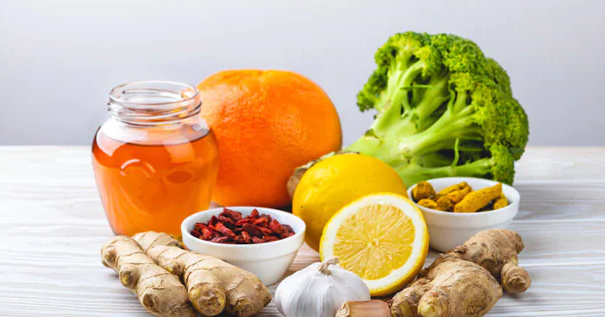The new variant of coronavirus, omicron, is rapidly increasing the COVID cases. According to experts, omicron can be fatal for people with weak immunity, so it is important to make some important changes in lifestyle and diet. This will strengthen your immunity and you will be able to protect yourself from infection. Know what are essentials in the diet.
1. Include food items like fruits, vegetables, nuts, legumes, seeds in your daily diet. They strengthen your immune system. The antioxidants present in them help in fighting inflammation.
2. Drink enough water, stay hydrated. People tend to reduce their water intake in winters. This can lead to the problem of dehydration which further affects the immune system of the body.
3. Stress has a direct effect on immune function. Stress or anxiety weakens the immunity of the body. To reduce stress, engage in activities that reduce stress.
4. Poor sleep can also affect your immunity. Get enough sleep. Sleep deficiency increases the risk of any diseases.
5. Go for a regular health check-up. A health check-up is necessary to check the level of vitamin D, calcium, and iron in the body. This will help you to plan your diet accordingly. You can increase your intake of sources of vitamins and minerals in which you are short of.
6. Zinc - Zinc is very essential for boosting immunity. You should include food items that are a good source of zinc. For example, you can have watermelon seeds. It is rich in zinc, potassium, and copper. Eating watermelon seeds strengthens immunity.
To fulfill the requirement of zinc, you can also consume one portion of garlic every day. This gives the body nutrients like vitamins A, B, C, iodine, iron, potassium, calcium, and magnesium.
Egg yolk is also a rich source of zinc. Apart from this curd also contains a good amount of zinc. This aids digestion along with boosting immunity. One should include curd in daily diet.
Cashews and peanuts contain high amounts of zinc. Peanuts contain iron, potassium, folic acid, vitamin E, magnesium, and fiber whereas cashews contain copper, vitamin K, vitamin A, and folate apart from zinc. Cashew is also a rich source of mono and polyunsaturated fatty acids.
Disclaimer: The content on this site is for informational purposes only, and should not be taken as professional medical advice. Always seek the guidance of your doctor or other health professionals for any questions you may have regarding your health or a medical condition.

 Omicron can be fatal for people with weak immunity, so it is important to make some important changes in lifestyle and diet. Read on to know about some do’s and don’t’s for diet
Omicron can be fatal for people with weak immunity, so it is important to make some important changes in lifestyle and diet. Read on to know about some do’s and don’t’s for diet










.jpeg)

.jpeg)
.jpeg)

.jpeg)


.jpeg)



.jpeg)
.jpeg)
.jpeg)


.jpg)


.jpeg)
.jpeg)